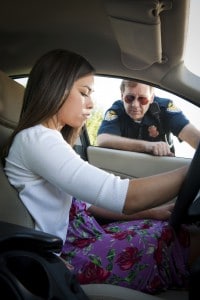
First, let’s start with the actual text of the 4th Amendment, which states:
“The right of the people to be secure in their persons, houses, papers, and effects, against unreasonable searches and seizures, shall not be violated, and no warrants shall issue, but upon probable cause, supported by oath or affirmation, and particularly describing the place to be searched, and the persons or things to be seized.”
Why the 4th Amendment Matters
The 4th Amendment is incredibly important because it protects Americans’ privacy and prevents authority figures, such as the police, from searching their possessions and homes without “probable cause”—reasonable grounds to suspect that a crime has been committed.
For example, many people believe that the 4th Amendment protects Americans from having to be stopped and searched by police, though it hasn’t been applied this way in some communities throughout the US. Minority communities often report instances of “unreasonable searches and seizures” that are frequently ruled unconstitutional by courts in California and other states.
How it Relates to DUI
If you get pulled over for a DUI in California, it’s important to keep in mind your 4th Amendment rights. As a consequence of this amendment, if you don’t want to answer the police officer’s questions, you don’t have to. You can politely decline to inform him about how much you’ve been drinking, whether you feel drunk, what you’ve been doing that day, or any other questions that are designed to help the officer build a case against you. By asking probing questions, the police officer is likely trying to determine enough probable cause to arrest you for DUI. Why help him or her do so? Protect yourself by declining to answer the officer.
How about field sobriety tests?
Field sobriety tests are also optional in California. While the conditions of allowing you to have a California driver’s license indicate that you must submit to DUI testing procedures after you are arrested, you don’t have to submit to pre-arrest screenings. That can be considered “unreasonable search and seizure” in accord with the 4th Amendment.
Got more questions?
If you have any questions about DUI procedures in California as they relate to the 4th Amendment of the United States Constitution, feel free to contact attorney Dan Chambers of the Chambers Law Firm. He specializes in DUI cases in Southern California, and he knows every detail of federal and state laws related to DUI inside and out.
Call 714-760-4088, email dchambers@clfca.com, or send an online message to Dan Chambers of the Chambers Law Firm by clicking CONTACT in the menu at the top of this page. Schedule a complimentary initial consultation today and get tailored legal advice pertaining to your specific situation.




